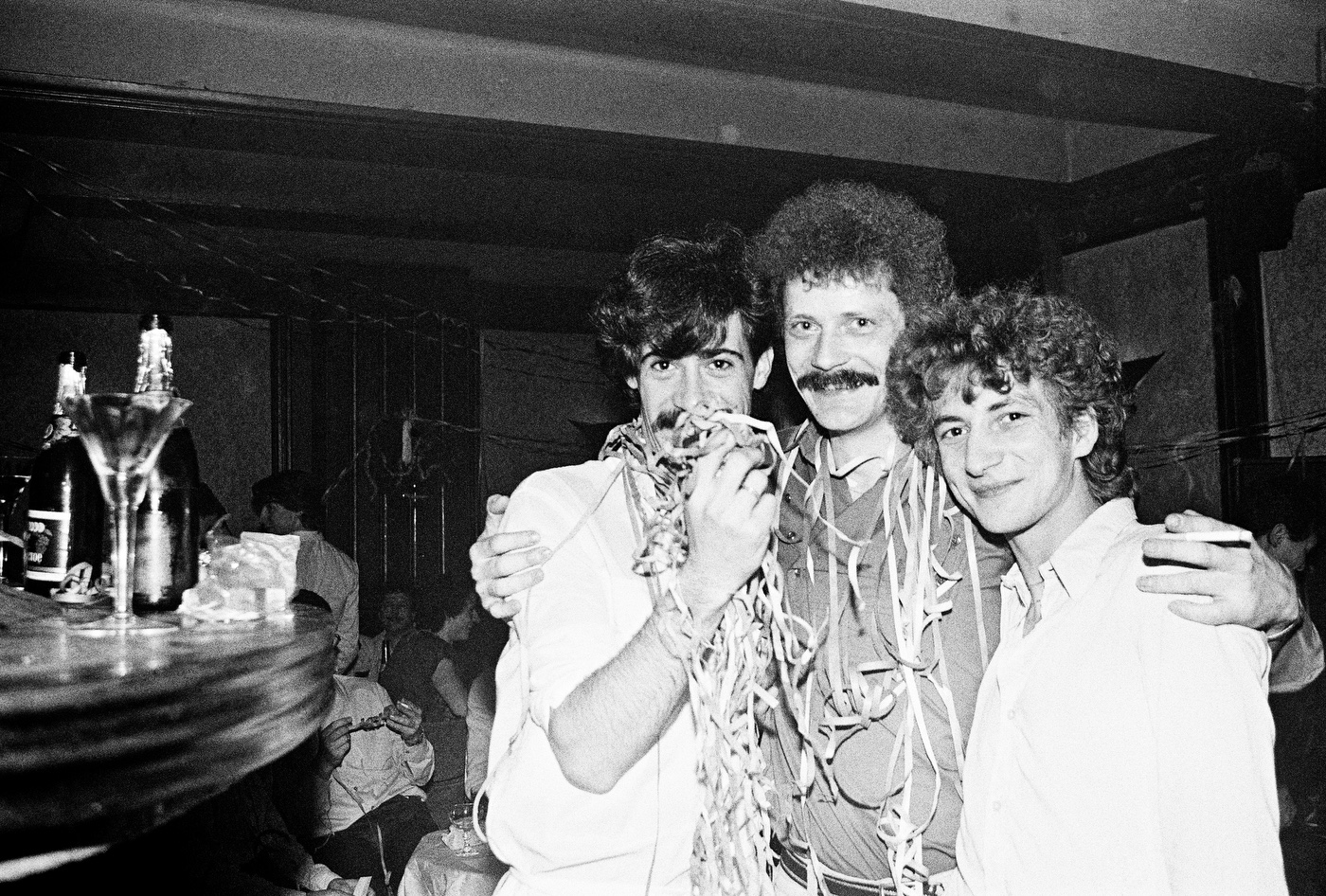Documenting LGBTQ hedonism in ’80s Czechoslovakia
- Text by Geralda Cela
- Photography by Libuše Jarcovjáková

Libuše Jarcovjáková has never taken nice pictures. Her photography is deeply personal, raw and uncompromising – and, as a result, one of the most eye-opening insights into life behind the iron curtain. It is a portrait of sex, desire and hedonism in ’80s communist Czechoslovakia.
“People tend to have a completely distorted image of what everyday life was like in a totalitarian society,” she explains. “People were extremely surprised by the lack of restraint in these photos, by how wildly we lived.”
“People don’t change that much. We’re still the same human species with the same worries and the same pleasures. Perhaps this is the universal message of my work: that people are always the same.”
Much of the 67-year-olds photography has remained hidden away until this year, when it was finally celebrated in a reflective exhibition at the Rencontres d’Arles festival 2019. The show, titled Evokativ, was the first time her extensive archive was shared with the rest of the world.
Some of Libušes most captivating work was taken during her nights in the T-club (one of the two underground gay clubs in Prague) in the ’80s. The photographer says that she visited almost every night from 1983 to 1985. “A friend took me there,” she recalls. “The moment I arrived I fell in love with the whole environment. I just knew that I had to take photos of the place and that one day I would.”
“Everything was so incredibly vivid, colourful, in contrast to the drab greyness outside.”
Although being openly LBGTQ+ was decriminalised in 1962, homophobia was still widespread in Czechoslovakia. Many gay people would still be faced with “gross indecency” charges, a term used liberally and loosely by state police. Despite that, people continued to risk their freedom while attending T-club – which was only a few minutes walk away from the Security Services headquarters.
“People were at risk of being blackmailed by the secret police because of their sexual proclivities,” says Libuše. “The entrance was guarded by a bouncer who was master of the fate of everyone trying to get into the club. He made absolutely sure that nobody entered who simply wanted to gawp at the gays or who might be aggressive. Anyone causing a disturbance could expect to be banned for a considerable period of time. It took a short while before I was able to visit the club on my own without a chaperone, but things soon settled down.”
Although Libuše describes growing up in communist Czechoslovakia as a “schizophrenic” time; she and the people whom she met, partied with and loved still lived in hope. “We knew without a shadow of a doubt that we were living in a perverse society in which the basic moral principles did not apply, and upon which the will of a foreign power was being imposed. In spite of all of this, we had hope. Quite illogically we hoped that everything would one day change.”










See more of Libuše Jarcovjáková’s work on her official website.
Enjoyed this article? Like Huck on Facebook or follow us on Twitter.
Latest on Huck

Plestia Alaqad: “Journalists should focus on humanising people”
Huck’s April interview — Having become one of the most crucial and followed voices from inside Gaza in the aftermath of October 7, the award-winning author and journalist is releasing a new memoir, ‘The Eyes of Gaza’, collating diary entries made over the past 18 months. We caught up with her to hear more about it.
Written by: Isaac Muk

The instrument makers taking DIY music to a whole new level
What does it take to construct a modular synth? How do you turn a block of wood into a double bass? Here, four craftspeople explain why they chose to rip up the rulebooks and build their own music-making machines.
Written by: Daniel Dylan Wray

Southbank Centre reveals new series dedicated to East and Southeast Asian arts
ESEA Encounters — Taking place between 17-20 July, there will be a live concert from YMO’s Haruomi Hosono, as well as discussions around Asian literature, stage productions, and a pop-up Japanese Yokimono summer market.
Written by: Zahra Onsori

In 1971, Pink Narcissus redefined queer eroticism
Camp classic — A new restoration of James Bidgood’s cult film is showing in US theatres this spring. We revisit its boundary pushing aesthetics, as well as its enduring legacy.
Written by: Miss Rosen

As amapiano goes global, where does it leave its roots?
Rainbow grooves — Over the past decade, the house music subgenre has exploded into a worldwide phenomenon. Jak Hutchcraft went to its birthplace of Mamelodi, South Africa, to explore its still-thriving local scene.
Written by: Jak Hutchcraft

Clubbing is good for your health, according to neuroscientists
We Become One — A new documentary explores the positive effects that dance music and shared musical experiences can have on the human brain.
Written by: Zahra Onsori